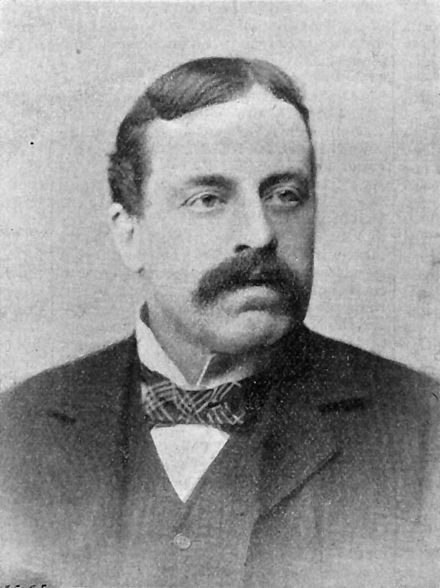July 15, 1955, is a historic day as 18 Nobel laureates sign the Mainau Declaration against nuclear weapons.
Almost a century ago in 1850, John Wisden playing at Lords disturbed the furniture of all ten South of England batsman.
He became the first player to bowled out all opposition batsmen in the same inns of First Class(FC) match. The three days match ended on the opening day itself.

This was the third instance of a bowler picking ten wickets in an inn. The first one to achieve this feat was Lillywhite of Players who in 1837, bagged 10 of the 15 Gentleman wickets. The Gentleman fielded sixteen players against the Players.
The eleven-player match first witnessed a ten-wicket haul by a bowler in an inning was in 1848. Edmund Hinkly of Kent bundled out England for 74 runs and ended with a ten wickets haul. However, Kent lost the match by 55 runs as Wisden fifer and Lillywhite’s three wickets restricted Kent to 49 runs.

John Wisden later went on to start Wisden Cricket Almanack, Bible of cricket. The cricket lovers are greatly indebted to “The Little Wonder” for his immense contribution to Cricket (literature).

Overall 88 players have bagged 10 wickets in an innings. The last one to enter this elite was Colombo Cricket Club Pushpakumara who in 2019 scalped all Saracens Sports Club wickets.
Walker scalped two ten wickets on the same day one in 1859 and another in 1865.
The Kent man Freeman has achieved this feat a record number of times.
| Player | Number of Inns |
| AP Freeman | 3 |
| H Verity | 2 |
| J Wisden | 2 |
| JC Laker | 2 |
| VE Walker | 2 |
| WG Grace | 2 |
The first Asian ground to witnessed this feat was Deccan Gymkhana Club, Poona in 1918. The match was between Lord Willingdon’s XI and Maharaja of Cooch Behar XI. The Victoria-born Francis Tarrant bagged all ten wickets of Lord Willingdon’s XI.
The player to scalp 10 wickets in an innings more than once in their career.
| Player | Match | Venue | Year |
| AP Freeman | Kent v Lancashire | Mote Park, Maidstone | 1929 |
| AP Freeman | Kent v Essex | Southchurch Park, Southend-on-Sea | 1930 |
| AP Freeman | Kent v Lancashire | Old Trafford, Manchester | 1931 |
| H Verity | Yorkshire v Warwickshire | Headingley, Leeds | 1931 |
| H Verity | Yorkshire v Nottinghamshire | Headingley, Leeds | 1932 |
| J Wisden | North v South | Lord’s Cricket Ground, St John’s Wood | 1850 |
| J Wisden | All England Eleven v Yorkshire | Hyde Park Ground, Sheffield | 1851 |
| JC Laker | England v Australia | Old Trafford, Manchester | 1956 |
| JC Laker | Surrey v Australians | Kennington Oval, Kennington | 1956 |
| VE Walker | England v Surrey | Kennington Oval, Kennington | 1859 |
| VE Walker | Middlesex v Lancashire | Old Trafford, Manchester | 1865 |
| WG Grace | Gentlemen of Marylebone Cricket Club v Kent | St Lawrence Ground, Canterbury | 1873 |
| WG Grace | Marylebone Cricket Club v Oxford University | The University Parks, Oxford | 1886 |
The Lord’s ground witnessed the event eight times followed by Kennington Oval.
| Venue | Number of Inns |
| Lord’s Cricket Ground, St John’s Wood | 8 |
| Kennington Oval, Kennington | 7 |
| Old Trafford, Manchester | 5 |
| Bramall Lane, Sheffield | 3 |
| County Ground, Taunton | 3 |
| Edgbaston, Birmingham | 3 |
| St Lawrence Ground, Canterbury | 3 |
The 1800s saw 25 such instances,1900s followed by 58.
| Century | Number of Inns |
| 18 | 25 |
| 19 | 58 |
| 20 | 5 |
The cricket lovers are greatly indebted to “The Little Wonder” for his immense contribution to Cricket literature. The journal started in 1864 as a competitor to Fred Lillywhite’s The Guide to Cricketers. The initial five editions of Wisden were published under the title The Cricketer‘s Almanack. The first edition was only 112 pages small editions. The distinctive bright yellow cover ran from 1938, the 75th edition. Over the years Wisden was edited by many distinguished editors. Sydney Herbert Pardon was the longest-serving editor of ” Wisden’s Cricketers’ Almanack.”
While the game of cricket played the biggest part in Herbert’s life, he was also a close student of the drama, good music, and a keen follower of racing. These were the four things in which he chiefly delighted, and it was always a proud recollection with him that on each of these four subjects he had written special articles, for The Times.

| Editor | Span |
| W. H. Crockford/W. H. Knight | 1864–69 |
| W. H. Knight | 1870–79 |
| G.H. West | 1880–86 |
| Charles F. Pardon | 1887–90 |
| Sydney Pardon | 1891–1925 |
| C. Stewart Caine | 1926–33 |
| Sydney J. Southerton | 1934–35 |
| Wilfred H. Brookes | 1936–39 |
| Haddon Whitaker | 1940–43 |
| Hubert Preston | 1944–51 |
| Norman Preston | 1952–80 |
| John Woodcock | 1981–86 |
| Graeme Wright | 1987–92 |
| Matthew Engel | 1993–2000 |
| Graeme Wright | 2001–02 |
| Matthew Engel | 2004–07 |
| Tim de Lisle | 2003 |
| Scyld Berry | 2008–11 |
| Lawrence Booth | 2012- |
